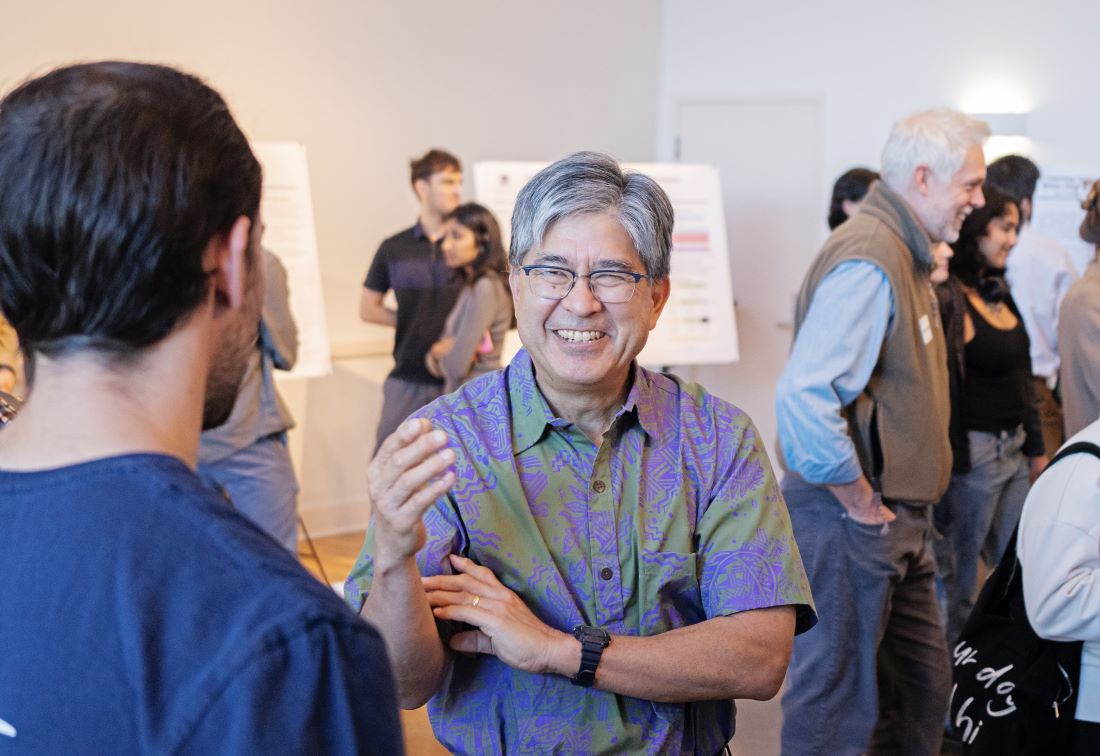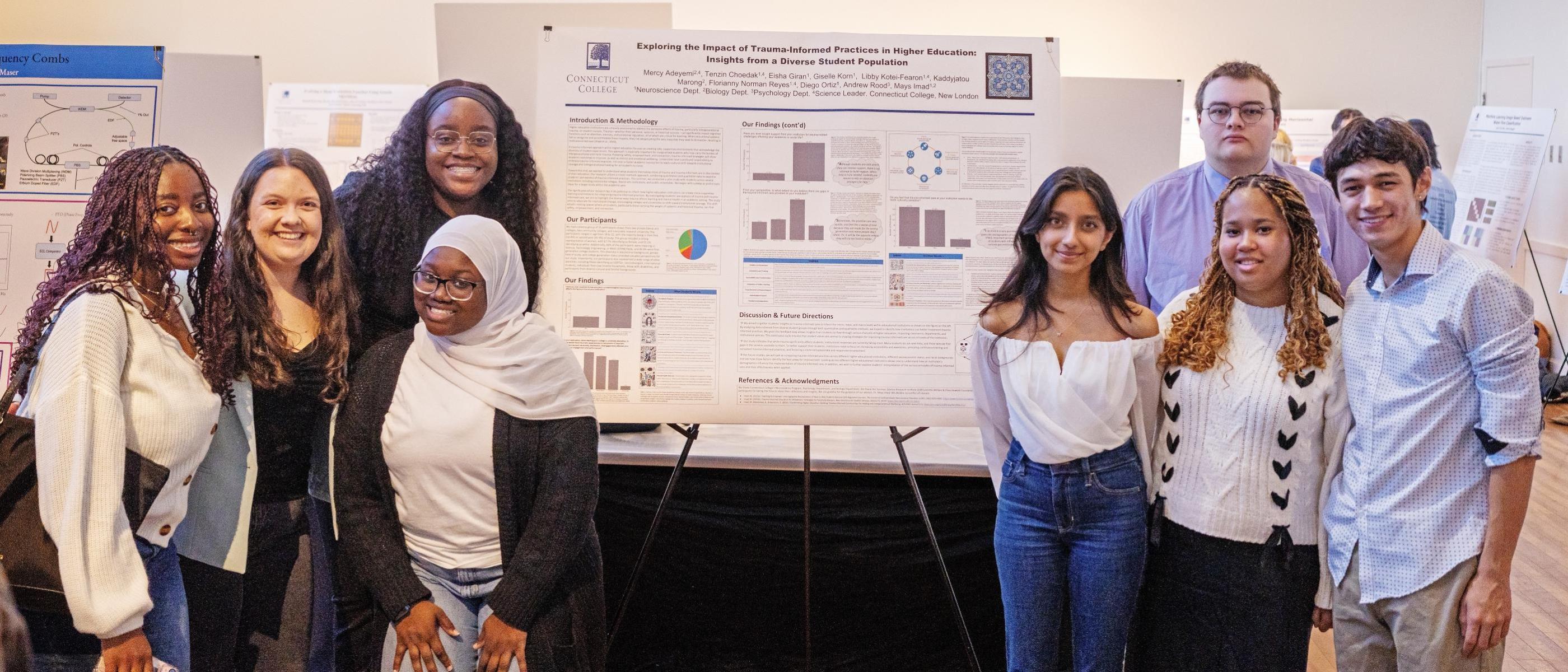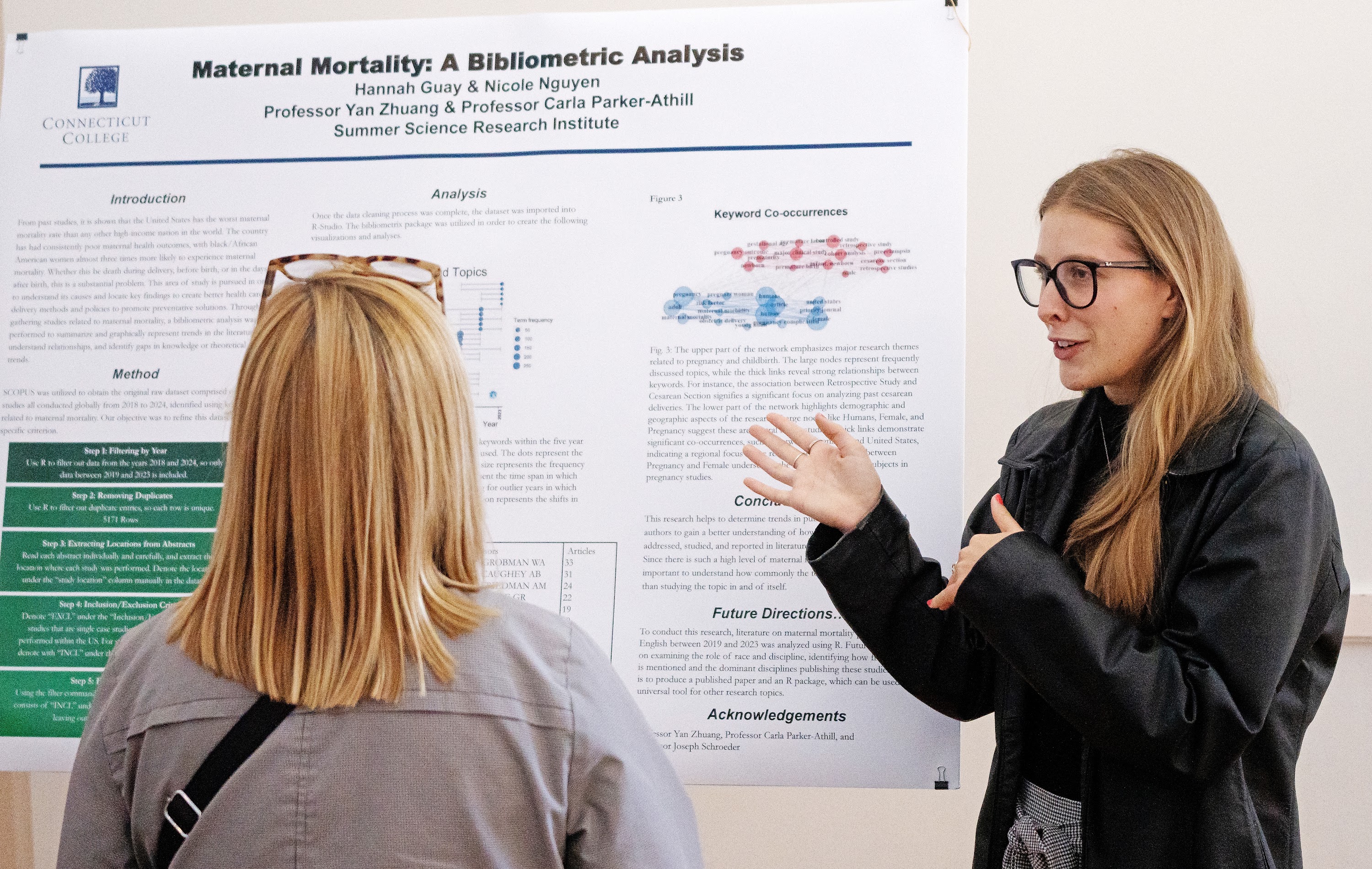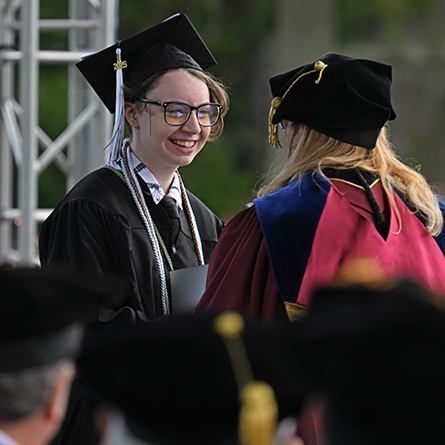
Students share summer science research at Fall Weekend poster symposium
Sarah Goyette ’27, a computer science and art history double major from Denver, Colorado, recently showed how she applied 2024 technology to a simulated version of the 1987 video game NetHack to study how an agent (computer player) can adapt in a constantly changing environment. Her work was completed during Conn’s Summer Science Research Institute (SSRI).
With Professor of Computer Science Gary Parker as her research adviser over the summer, as well as assistance from Jim O’Connor ’13, who helps run Parker’s Autonomous Agent Learning Lab, Goyette built a randomized agent that chose arbitrarily among every possible action. She then used a neural network (a deep learning model that mimics the human brain) that treated every action as a potential output and environmental information, like the agent’s stats and the map, as inputs. She then applied the algorithm NeuroEvolution of Augmenting Technologies (NEAT) to evolve the network. Finally, she ran NEAT until convergence (the point where the agent stopped improving).
Goyette was pleased to discover that the agent’s score improved by 470% over 50 generations. “I was really surprised how well it did. I thought since there were so many actions available to it, it wouldn't be able to select the right one under pressure. It ended up learning a good strategy,” she said while presenting her research during the SSRI Poster Symposium on Oct. 18.
SSRI provides opportunities for approximately 50 math and science students at Connecticut College to conduct full-time research with faculty during the summer intersession. Students, who receive a $4,000 stipend and free campus housing for eight weeks of research, work closely with an academic mentor in designing a research project, allowing them to grow as independent scientists while building connections with STEM faculty and other undergraduate researchers. Some funding is also available for faculty to purchase research supplies for their students or to support student attendance at conferences.

“The SSRI program is an integral part of the sciences here at Conn,” said the program’s director, Mike Seifert, associate professor of physics and chair of the Department of Physics, Astronomy and Geophysics. “When students get involved in research, it helps them see themselves as future scientists and encourages them to persevere in the field—something that’s particularly important for underrepresented groups.”
Seifert, who recalled his own undergraduate experience at a liberal arts college, added, “The ability to do research with a professor there played a huge role in the trajectory of my career since then. I’m always glad to help the next generation of scientists get their start.”
SSRI hosts weekly colloquia for student researchers to present their work and sponsors organized activities throughout the summer. Each fall, the SSRI students get another opportunity to showcase their research to the entire college community at the SSRI Poster Symposium. Student participation in SSRI often leads to honors thesis work in their discipline, scientific publications, and enhanced fellowship and career opportunities.
“The poster session is the capstone event of each summer’s research,” Seifert said. “It’s an opportunity for these dozens of students to show off the fruits of their hard work and ingenuity over the past summer, and to get experience communicating their work to people who might not know very much about their field—an important skill that will serve them well in their time beyond Conn.”


